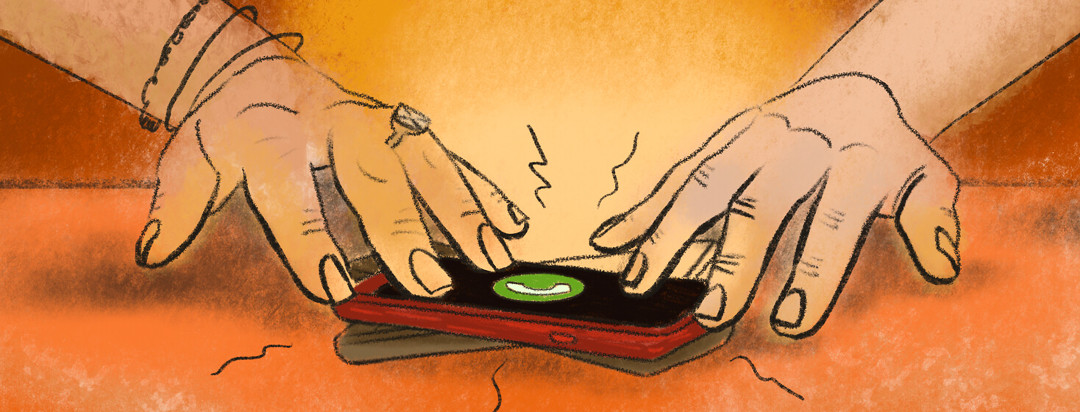My Journey To Becoming A CF Parent
Every CF parent has a diagnosis story--the process leading up to the diagnosis and the exact moment of learning of their child’s condition. For many people, the diagnosis comes within days, weeks, or months after the birth of their beautiful baby. For my husband and me, it came months prior to our baby being born. However, no matter when it happens, the raw emotional components of this experience are the same.
In the timeframe of learning our daughter had cystic fibrosis, we experienced grief, sadness, and a deep sense of fear. We sat with these emotions for a week or so, and then experienced a shift. As we learned more about our new reality, we began to experience hope, serenity, and once again, we returned to a feeling of joy about the arrival of our baby.
I was familiar with cystic fibrosis
Before becoming a CF parent, I was not a stranger to cystic fibrosis. My cousin, Lisa, had CF. As a kid, I saw her take her enzymes with meals (she called them her “beads”), drink lots of full-fat milk with meals, and do her manual air clearance with my aunt. Lisa lived a full and wonderful life, but unfortunately, she died at age 27 from cystic fibrosis in 2014. Little did I know that just two and a half years later, cystic fibrosis would become a major part of my and my family’s life.
In November 2016, my husband and I learned that I was pregnant. We had just celebrated our third anniversary and we were ecstatic. I began the typical process of a newly expectant mother: cut out wine and sushi, shared the news with close family and friends, and started going to my OB-GYN for prenatal doctor’s appointments.
Finding our carrier status
At my nine-week appointment, I had the standard blood tests. The results determined that I was a gene carrier of cystic fibrosis. This was not a big shock to me because of my family connection to the disease. My sister is also a gene carrier, and several of my female cousins are as well. No big deal. As a precautionary next step, Rhett got his blood test taken. We went on with our lives, barely giving it a second thought.
However, just a couple of weeks later we learned that Rhett, too, is a carrier of the same CF gene as I was, deltaF508. Fear began creeping in as we learned about the statistics of our baby having CF. While there are several scenarios, the one that stood out the most was the 25% chance that she would have CF. That percentage was very real and scary to us. As much as we wanted to focus on the 75% chance that she would not have CF, it was difficult. The fear consumed our thoughts.
Together, Rhett and I decided we wanted to know the diagnosis prior to our baby’s birth. We knew we wanted to be prepared with as much information and resources as possible about this disease on the chance that she had it. And if she didn’t? We could breathe a sigh of relief and get back to baby planning.
Genetic testing for cystic fibrosis during pregnancy
In February 2017, I underwent a procedure called a chorionic villus sampling (CVS). According to the American Pregnancy Association, CVS is a "diagnostic procedure that involves removing some chorionic villi cells from the placenta at the point where it attaches to the uterine wall."1 Because I was 14 weeks, I had the transcervical method, in which an ultrasound guided a thin catheter through the cervix to my placenta and the chorionic villi cells were suctioned into the catheter and tested.1 To put it mildly, it was an extremely uncomfortable and invasive procedure. I hated every second of it, and unfortunately, I had to experience it twice in one week because the first time was unsuccessful.
Part of this process also involved meeting with a genetic counselor. She told us the facts and the statistics involved with cystic fibrosis and with the CVS procedure in general, and drew a genetic diagram of Rhett and my families. She promised to call us as soon as the results were in, within 7-10 days.
Thus began the long and terrifying wait. All CF parents know this wait, whether it comes prenatally or after newborn testing. We tried to distract ourselves as best we could. I lasted maybe four days before calling the genetic counselor to casually check-in. During this time period, we did receive some exciting news--because the CVS tested the chromosomes, our counselor called with news of the baby’s sex. Rhett and I wanted to know, and she told us the baby was a girl. We initially had a strong feeling she was going to be a girl and were absolutely thrilled. Surely this was a sign of more good news to come. Our baby girl could not have this dreaded disease.

Join the conversation